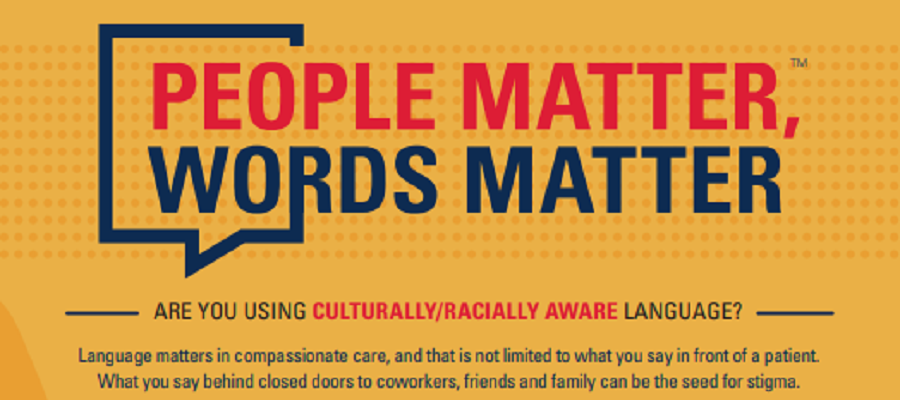How Respectful Dialogue Can Reduce Mental Health Stigma

This month we celebrate National Minority Mental Health Awareness Month, so it is appropriate that we consider the impact of our words as we work to reduce the stigma around mental health issues. This is especially true as it pertains to minority populations. Words matter, because in our choice of words we guide others down positive or negative pathways in how they respond and think about a given issue. Moments matter, because on any given day we have hundreds of opportunities to choose words that create awareness and educate others to better possibilities. As professionals, we often spend a great deal of time in preparing for public presentations, being thoughtful about the words we choose, how we present and all the other factors we account for as we hope to educate, change perspectives or invite healthy discussion. Too often we lack the same amount of attention in our conversations and brief interactions that we have with staff, other colleagues and sometimes patients throughout the day. Recently, AHA created a stigma-reduction campaign entitled “People Matter, Words Matter.” This campaign includes posters that provide excellent examples of how one might respond to some examples of language that does not demonstrate cultural or racial awareness.
Yale New Haven Health has a developed a broad array of learning resources around diversity, equity and inclusion. I believe the most valuable and effective program that has been implemented is the B.R.A.V.E. program. The acronym stands for Bold/Relevant/Authentic/Valuable/Educational. The program was developed with the goal of creating a safe space for conversations around racism, racial equality and racial healing, but the concepts are easily expanded and applied to reducing the stigma of mental health in the cultural and ethnic minority populations. The steps are essentially:
- Reinforce the purpose – create a safe space to share concerns and feelings around comments that you hear.
- Set agreements to encourage open and respectful dialogue - listen, acknowledge discomfort, be compassionate and avoid negative language. Assume good intent and value the other person’s feelings.
- Open the conversation with your personal story and engage others - share how the experience impacted you and invite others to do the same.
- Bring the conversation to a close and thank them for the courage to share and listen - encourage people to think about what they can do to impact change and act.
The next time you are walking down the hallway and overhear negative comments, take the moment, choose the words, and have a brave conversation.
Mark Sevilla is vice president of behavioral health and emergency services for Yale New Haven Hospital.

